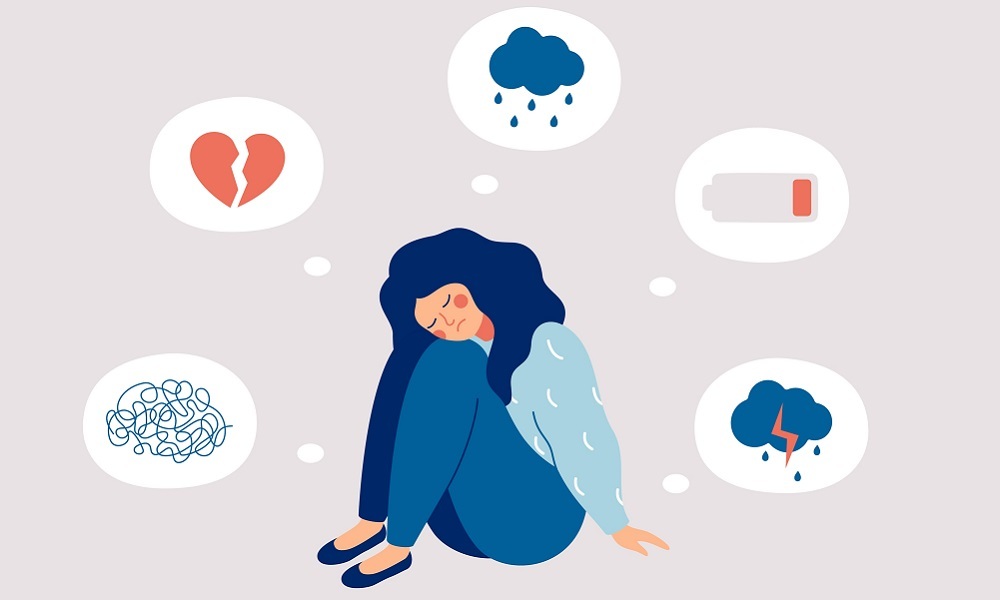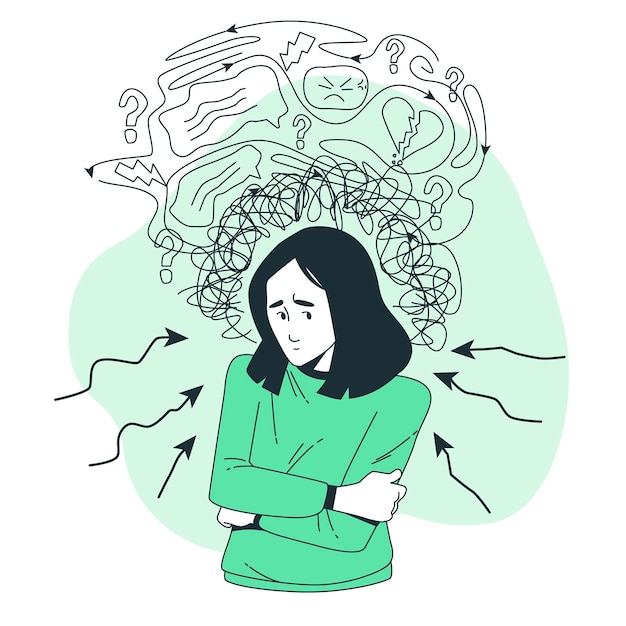Anxiety, Panic Attack, Anxiety attack, Stress, Breathlessness, Crashing.
Root cause of disease:
A panic attack is a sudden and intense episode of fear or discomfort that can last for several minutes or up to an hour. It is a type of anxiety disorder that can be debilitating and disruptive to daily life.
It’s not known what causes panic attacks or panic disorder, but these factors may play a role:
- Genetics
- Major stress
- Temperament that is more sensitive to stress or prone to negative emotions
- Certain changes in the way parts of your brain function
Panic attacks may come on suddenly and without warning at first, but over time, they’re usually triggered by certain situations.
Symptoms:
Physical symptoms of panic attacks:
- Feelings of dizziness
- Chest pains and shortness of breath – tightness of the chest and feeling as though it’s a struggle to breathe.
- A racing or pounding heart
- Hyperventilating
- Feeling as though you are choking
- Nausea
- Abdominal discomfort
- Muscle spasms and palpitations
- Excessive sweating
- Trembling or shaking
Behavioural/social symptoms of panic attacks:
- Social withdrawal and isolation – not wanting to meet with family and friends, in order to try and hide your condition and reduce the chances of a panic attack occurring.
- Reduced school or work performance
- Inability to manage day-to-day tasks effectively
- Frequent visits to emergency departments
- Seeing your GP more than usual
Psychological symptoms of panic attacks:
- A feeling of being out of control and disconnected from your surroundings
- Believing that you are having a heart attack, or that you’re going to die
- Having other mental health conditions such as intense anxiety, depression, stress and worry.
- Hopelessness, confusion and frustration
- Paranoia and low self-esteem
Causes:
Panic attacks may come on suddenly and without warning at first, but over time, they’re usually triggered by certain situations. It’s not known what causes panic attacks or panic disorder, but these factors may play a role:
- Hereditary/genetic factors
- Biological factors
- Phobias
- Short-term emotional triggers, such as bereavement
- Maintaining causes (situation avoidance, dysfunctional beliefs)
- Lack of assertiveness
- Certain medications
- Substance withdrawal
- Chronic and/or serious illness
Home remedies to treat Panic attacks
Remedy-1: Breathing exercises

If you’re breathing quickly during a panic attack, doing a breathing exercise can ease your other symptoms. Try this:
- Breathe in as slowly, deeply and gently as you can, through your nose
- Breathe out slowly, deeply and gently through your mouth
- Some people find it helpful to count steadily from 1 to 5 on each in-breath and each out-breath.
- Close your eyes and focus on your breathing.
Remedy-2: Lavender oil

Lavender was used in the treatment of anxiety disorders and related conditions. Anxiolytic effect of lavender was superior to placebo in 221 patients suffering from anxiety disorder. In addition, lavender improved associated symptoms such as restlessness, disturbed sleep, and somatic complaints and had a beneficial influence on general well-being and quality of life.
- Add a few drops of lavender oil in a diffuser to inhale the aroma
- Alternatively, you may massage a few drops onto the inner aspect of the wrist so as inhale the aroma.
Product Link: Lavender
Remedy -3: Kava root

The kava root can be used as a natural treatment for anxiety because it is non–hypnotic and nonaddictive anxiolytic. This home remedy is used to boost sociability, ease anxiety and improve mood. It is working by stimulating the dopamine receptors and inducing euphoria.
There are some studies in which is said that the kava root can be used as first-line therapy for generalized anxiety disorders and it is shown that it can be safe for people who are undergoing treatment. You need to take kava root under the guidance of your health care provider because this natural cure can interact with some medications.
Product link: Kava
Remedy -4: Ashwagandha

This is an adaptogen herb which is often used as a home remedy for anxiety because it can stabilize the response of our bodies to stress. There are some studies in which is said that when patients were taking ashwagandha therapy, then they noticed an improvement in the symptoms of anxiety. But this home remedy is not just a stress reliever. This natural cure can protect your brain from degeneration and it is working to improve the symptoms of anxiety and destroy free radicals which can cause damage to your body and brain. There are some studies which are shown that it can reduce fatigue, improve focus and fight against anxiety without causing side effects as most the anti-anxiety medications are doing.
Product link: Ashwagandha
Preventions
- practice breathing exercises every day to help prevent panic attacks and relieve them when they happen
- practice regular exercise, especially aerobic exercise, to help you to manage stress levels, release tension, improve your mood and boost confidence
- eat regular meals to stabilize your blood sugar levels
- avoid caffeine, alcohol and smoking – these can make panic attacks worse
- try a panic support groups to get useful advice about how to manage your attacks – your GP can put you in touch with groups in your area
- try cognitive behavioural therapy (CBT) to identify and change the negative thought patterns that are feeding your panic attacks




